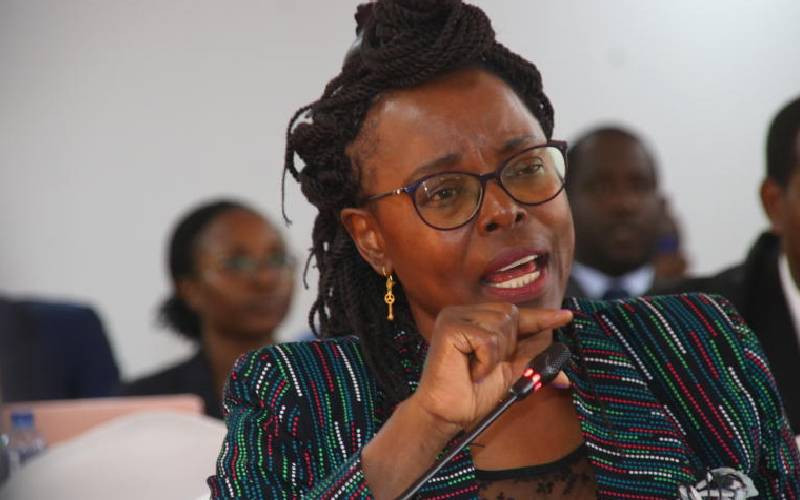×
The Standard e-Paper
Smart Minds Choose Us

The government has exceeded the legal borrowing limit of Sh10 trillion by Sh585 billion, Controller of Budget Margaret Nyakang'o has revealed.
According to the National Government Budget Implementation Review Report for the first quarter of the 2023/2024 financial year, the total public debt as of September stood at Sh10,585.1 billion.
The report revealed that the Sh10.585 trillion debt is composed of Sh5.67 trillion in external debt and Sh4.92 trillion in domestic debt.